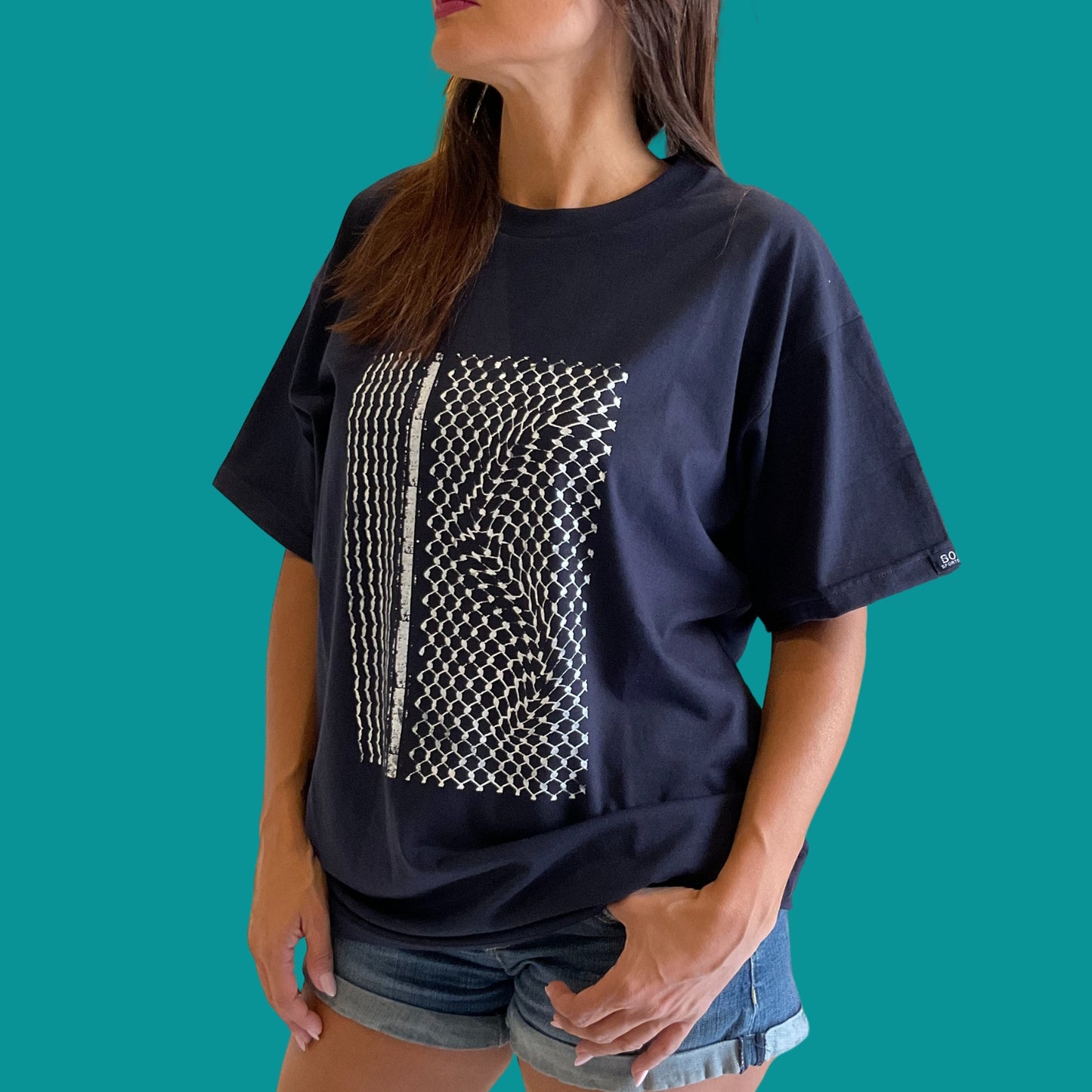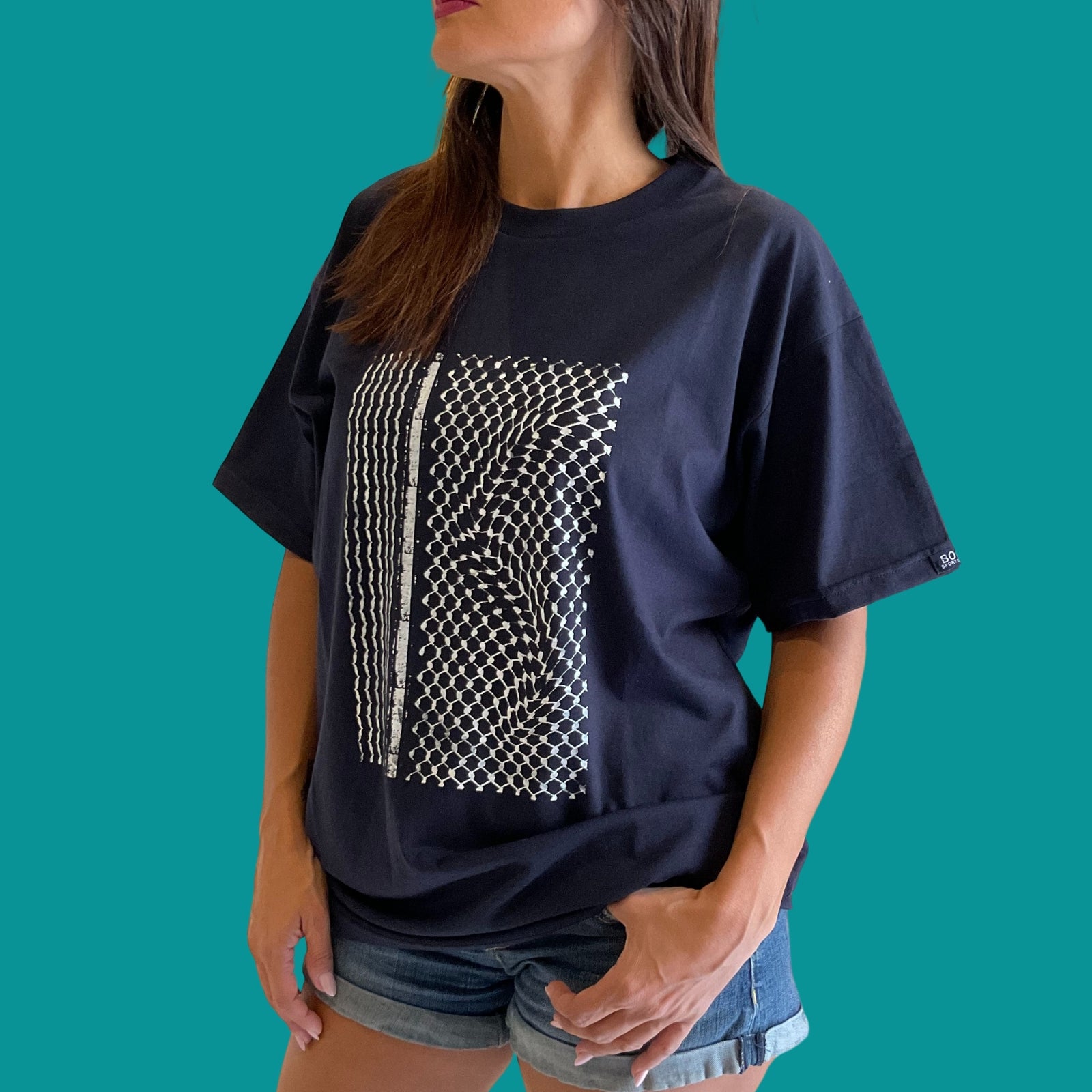Limited Edition Viscosity T-shirt
Limited Edition Viscosity T-shirt
By Jameel Shammout
In Clothing & Accessories
Couldn't load pickup availability
Out of stock
Item details:
▸ Features: Limited Edition▸ Materials: Cotton
▸ Art technique: Printmaking Illustration
▸ Net Weight (kg): 0.3
This black cotton t-shirt, a limited edition piece illustrated by Jameel Shammout (JamPam), is unisex and features a unique printed design on the front.
The Viscosity print symbolizes the 1948 Nakba and the ongoing displacement of the Palestinian people. The design portrays the Kuffiyeh pattern shifting and flowing like water, representing the forced uprooting of Palestinians. Just as water, despite obstacles, remains connected to its source, the Palestinian people maintain their ties to their homeland. This piece reflects the resilience and persistence of the Palestinian struggle, whether through occupation or life in the diaspora, with trauma and loss shaping their collective narrative, much like water shapes landscapes.

About Jameel Shammout

Jameel Shammout aka JamPam is a street artist focusing on topics that reflect his upbringing as a Palestinian in the diaspora. Born in Amman in 2001 to a family without roots in any one location, Jam moved through 8 countries and 3 continents before the age of 20. This life meant that one of the few common links between all the cultures he had to adapt to was art—the only internationally shared language.
While it’s common for artists to utilize street art, murals, and graffiti to build hope and resilience within communities, JamPam took a different approach. Surrounded by foreign societies that didn’t understand the effects of long-term occupation of a homeland or what it means for the population in and outside of the country, he used street art to offer those communities a new perspective.
“I wanted people to understand that war and occupation mean more than just numbers and statistics. I wanted people to relate to, if even just so slightly, what the Middle East has been through, and continues to go through. This pushed me to move away from the traditional forms of raising awareness and instead focus on how I can guide someone’s mind into my own. How can I find the connections between what expresses my emotions and what expresses yours? Finding that link between populations is what ultimately creates empathy and understanding between them.”

